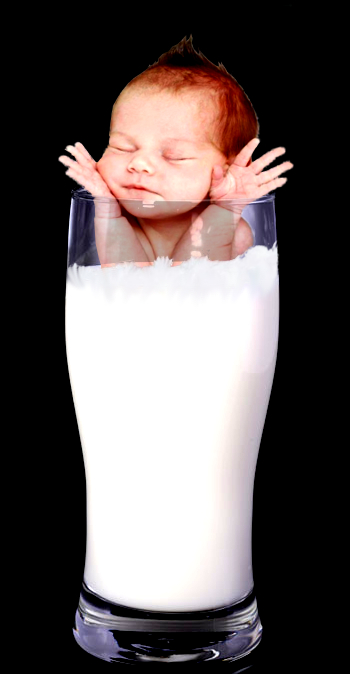Formula exploitation slammed
 Experts are calling for an end to the exploitative marketing used by the baby formula milk industry.
Experts are calling for an end to the exploitative marketing used by the baby formula milk industry.
Baby milk formula companies are exploiting parents’ emotions and manipulating scientific information and policymakers to generate sales at the expense of the health and rights of families, women, and children, argues an international team of scientists in a set of new papers.
“Milk formula companies are using an arsenal of sophisticated tactics to sell their products, including taking advantage of parents’ worries about their child’s health and development,” says Associate Professor Julie Smith from the ANU College of Health and Medicine.
“The formula industry uses misleading information to suggest, with little evidence to support the science, that their products are solutions to common infant health and developmental challenges.”
Some adverts infer that specialised formulas alleviate fussiness, help with colic, prolong night-time sleep and even encourage superior intelligence, despite studies showing no benefit of these product ingredients on academic performance or long-term cognition.
These marketing techniques violate the WHO’s International Code of Marketing of Breastmilk Substitutes, which says labels should not idealise the use of milk formula and exploits poor science to create an untrue story to sell more products,
Australia is one of only a few countries worldwide that has not implemented the code of marketing into national law.
Associate Professor Smith said in addition to abolishing manipulative marketing tactics, governments and workplaces must recognise the value of breastfeeding and care work to better support women who want to breastfeed.
This includes extending the duration of paid maternity leave to align with the six month WHO recommended duration of exclusive breastfeeding.
“Advice that breastfeeding is best for their babies' health is no use if women are not supported to understand and manage unsettled baby behaviours, or if mothers without maternity leave or pay are forced to go back to employment out of financial necessity,” Associate Professor Smith said.
“These scientific papers bring together, for the first time, evidence of how baby milk companies reinforce and amplify parental anxieties and create gaps in food regulations, health care and employment systems, which companies exploit to push their product regardless of need.”
Medical journal The Lancet has published a series of articles calling for active promotion of breastfeeding, enabling mums, families and health professionals to make informed decisions around infant feeding that are guided by accurate information and free from industry influence.
They also suggest the adoption of an international legal treaty to better regulate formula marketing ploys and protect the health and wellbeing of mothers and their infants.







 Print
Print